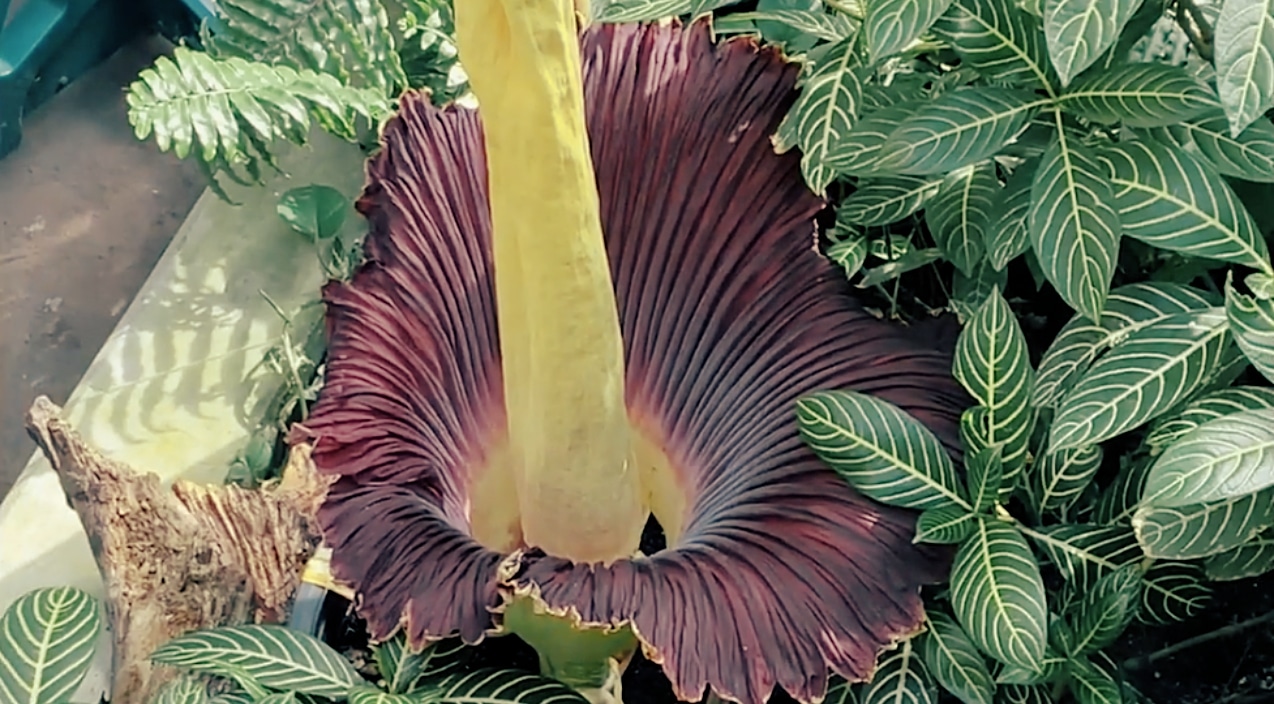Corpse Flower Just Bloomed In Nashville Zoo
on Oct 12, 2020 • Updated Jan 15, 2025

The Nashville Zoo has just announced that their rare corpse flower has just bloomed! The zoo posted a video of the flower in full bloom on their Facebook on October 12th, 2020.

“Our corpse flower has bloomed! We don’t know exactly how long the bloom will last, but we recommend visiting tomorrow to see & smell it,” the Nashville Zoo reported on Facebook. “The smell is strong with this one.”
The reason why they’re considered rare is because it takes eight to ten years for them to bloom and the bloom only lasts a few days. Vanderbilt University originally planted this specific flower in their greenhouse in 2012 but when they closed last year the university decided to give it to the Nashville Zoo.
https://www.facebook.com/nashvillezoo/photos/a.10150093737510622/10158401530635622/
Technically, the plant is called an Amorphophallus titanum but it’s most commonly referred to as the “corpse flower.” It’s one of the tallest flowers in the world known to grow up to 10 feet tall.
One of the most distinct features about the plant, and probably the reason why it’s called the corpse flower, is when it blooms it releases a strong smell that’s very comparable to rotting flesh.
https://www.facebook.com/nashvillezoo/posts/10158397741545622
Go ahead and watch the video below the zoo posted on Facebook!











